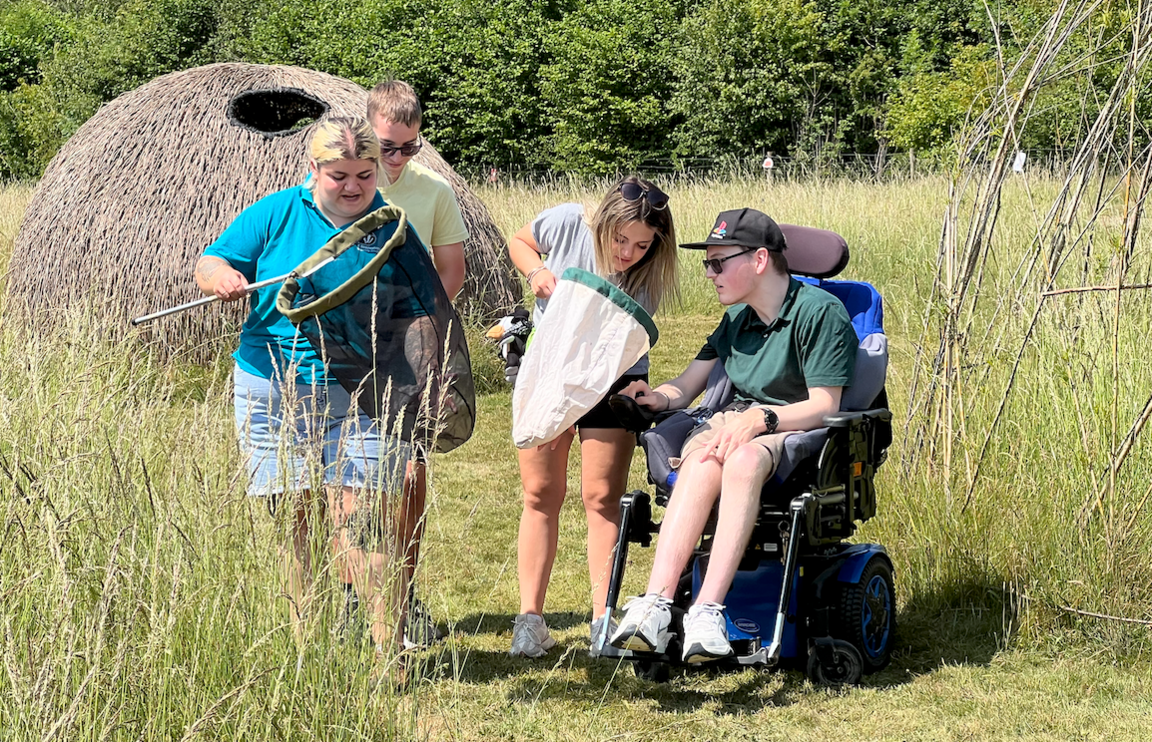Send students share nerve-wracking journey planning life after college

Rhi (left) Billy (middle left) Kate (middle right) and Chris (right) are planning their futures after they graduate from a specialist further education college
- Published
Final-year students at a specialist further education college say they are facing a nerving-wracking journey into the unknown. Their futures hang in the balance, reliant on local government funding or fighting against stigma to gain employment.
For the next 12 months the BBC will follow a group of final-year students at National Star College near Cheltenham in Gloucestershire as they prepare to leave.
They all have hopes and dreams about what they would like their future to be like, but the reality is not going to be easy.
Their futures rely not just on financial support from stretched local authority adult social care budgets, but also on the opportunity and availability of accommodation where they live.
When they leave National Star, their local authorities will assess each of their cases for financial support, and there are no guarantees.
Many of the students the BBC have spoken to have said they would like to work and devote their lives to something they care about.
But the reality of finding employment for disabled people is challenging, with figures showing they are almost twice as likely, external to be unemployed as non-disabled people.
Later this month, they'll all attend a transition event to learn more about the options on education, training, living and social opportunities.
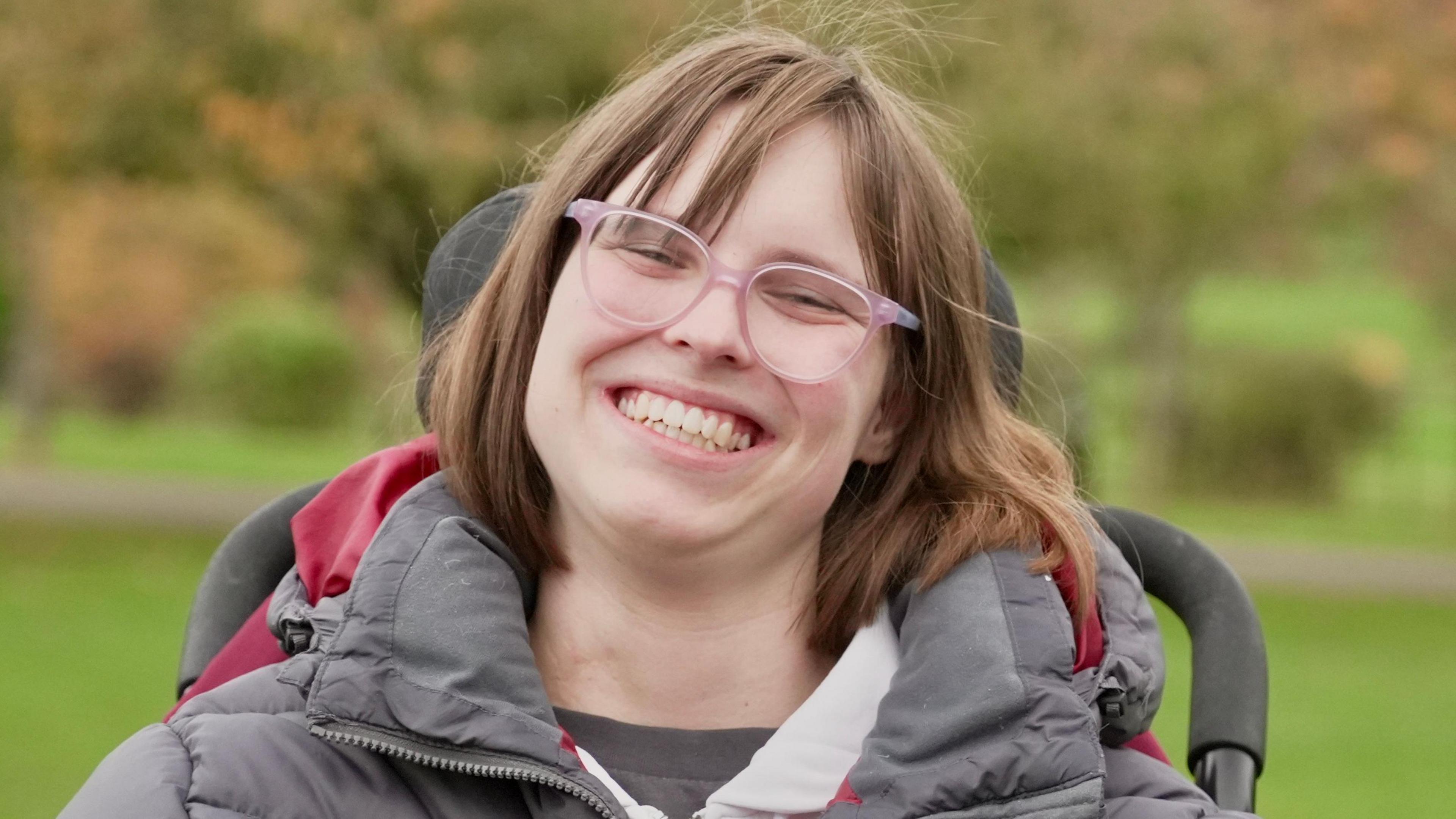
Kate says she is nervous about heading off into the unknown
Kate, 19, from Bath, is eagerly awaiting this event.
The final-year student has cerebral palsy and lives in one of the college's residencies in Cheltenham.
When she leaves, Kate wants to live independently and work in building or interior design, particularly when it comes to making properties more accessible.
"I like trying to find places where they put ramps and lifts in better," she said.
However she's nervous about leaving as, at the moment, it is heading into the unknown.
"I prefer things to be set, so I know, rather than not [knowing] what I'm going to do next," she said.
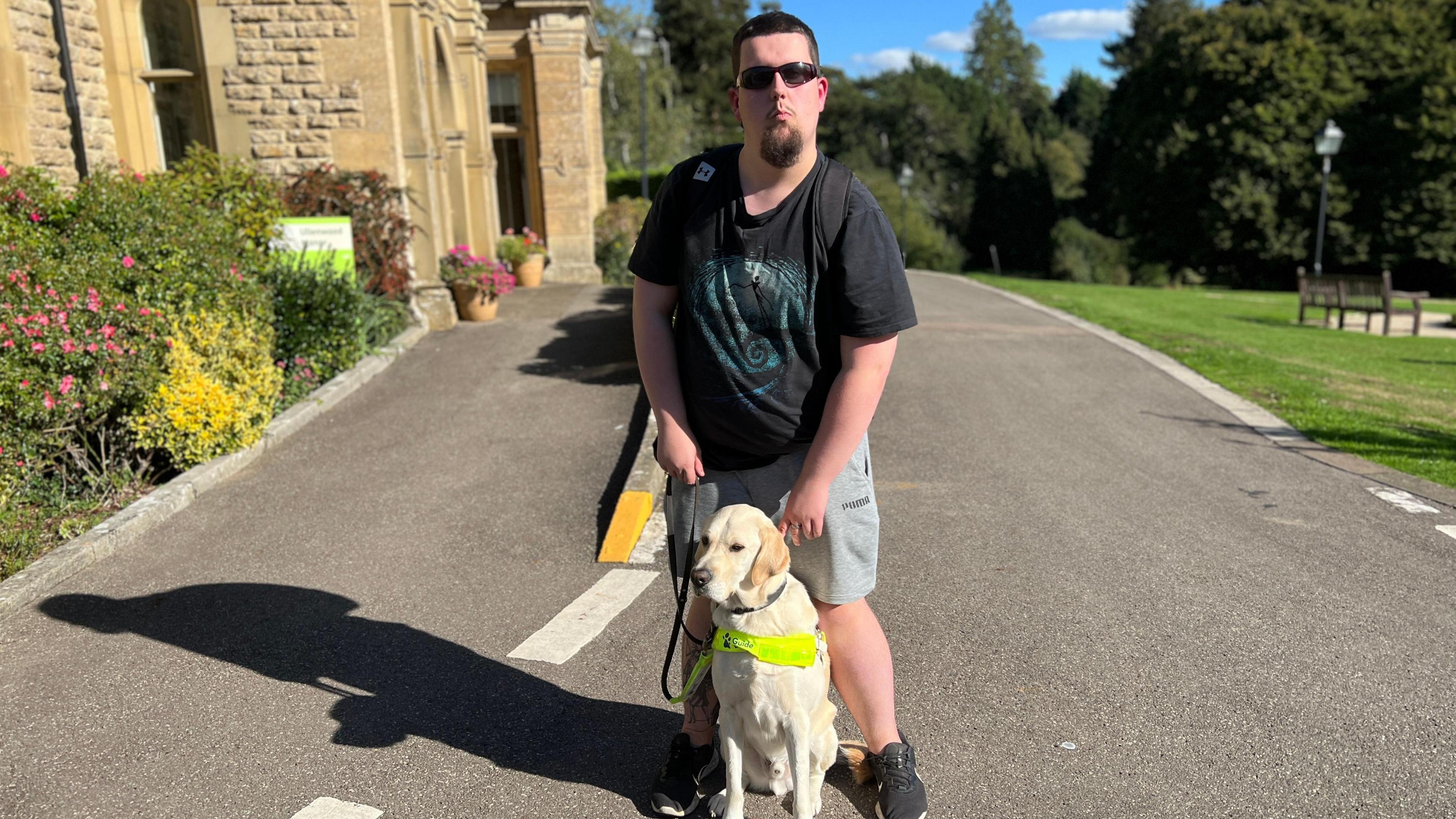
Chris, who is visually impaired, has grown in confidence since being at National Star College
Kate's ambition mirrors Chris' from Gloucester.
He's visually impaired, and has grown in confidence since joining National Star College - especially through work placements with local charities, where he's helped sell goods online.
"I want to start my own business in reselling.
"I'd rather be doing something with my life than being bored.
"Even though my visual impairment has stopped me doing things, life shouldn't stop you. Put your mind to it," said the 19-year-old.
But like many people in Chris' situation, the opportunities are not always there.
His mum Claire said: "Chris has tried everywhere to get just a little Saturday job and nothing's there."
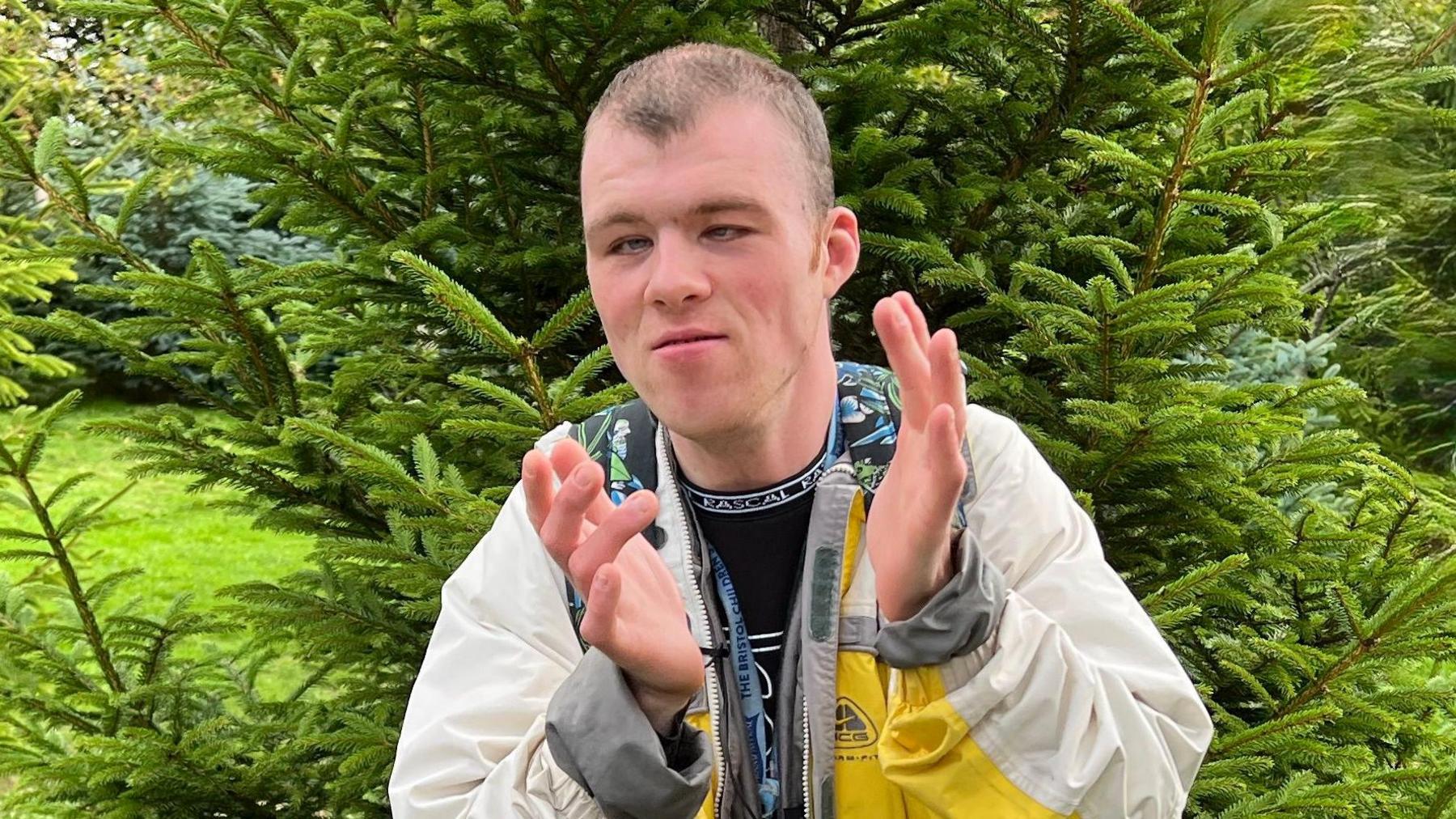
Billy had to fight two tribunals challenging his local authority to fund his place at National Star
Meanwhile Billy, 23, who has cerebral palsy, had to fight two tribunals challenging his local authority to fund his place at National Star.
It is not cheap, with the average cost per student anywhere between £20,000 up to £300,000 a year depending on individual requirements on living, therapy and care.
It is funded in England through Education, Health and Care plans (EHCPs) but his family, say National Star was 100% the right place for Billy.
His mum Jeanette said: "He's a lot more mature since he's been here and his communication has got so much better."
Dad Rich says he's so friendly but his social skills have improved.
"At restaurants he used to spend most of the evening sitting with other people on their table and talking to them but he sits with us now! We've ended up in the kitchen with the chef before now," he added.
A lot of the work the team at National Star are doing now is starting to prepare students like Billy for leaving.
His family hope he'll win funding to live independently in supported accommodation.
Working with his personalised learning coordinator, Ruth, Billy is starting to understand that next July he'll have to leave.
He signs that he's sad, but using a communicator, he says he wants to work as a refuse collector.
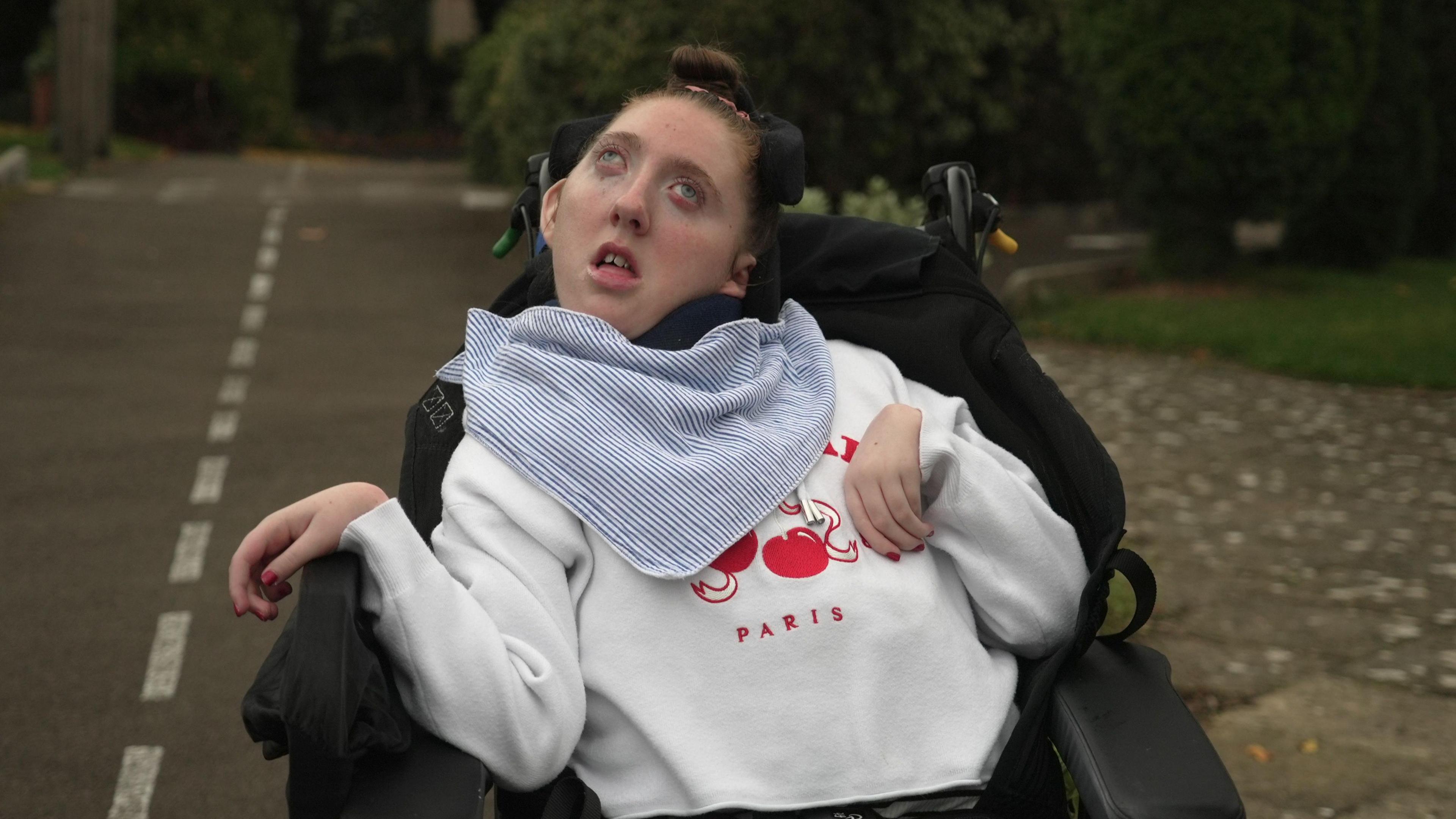
Rhi says being at National Star made her very happy
Not all of the students want to live independently. Rhi, 23 and from Wales, sustained a brain injury after being starved of oxygen at birth.
When she leaves college, she will return home to live with her family, as their house has been specially adapted to meet her needs.
She can only communicate through blinking, saying "yes" or "no", but also working with a therapist is now able to use an electronic communicator to say a few words.
Being at National Star made her feel happy and loved, she said.
While she is not worried about leaving, she has urged those making decisions about her future to listen to the choices she wants to make and give her independence.
Her mum Jayne says that National Star has been so transformational they're applying for her to stay another year, but that's not guaranteed.
"It'll be another fight about what to do next, otherwise. We haven't seen a social worker since just before she started here so we're just waiting to hear," she said.
In Wales the government funded places for students at National Star but that's now being devolved to local authorities.
'Incredibly difficult'
Lynette Barrett, chief executive of National Star, said the three years at the college can go in a flash and is urging local authorities to stay in touch with the students so that the transition is easier.
The college works hard to make sure the opportunities are there when students leave, but there is a postcode lottery of opportunity, she said.
"There's a reducing number of providers out there that are offering appropriate social care for young adults with complex needs," Ms Barrett said.
"That includes supported living, residential care and meaningful occupation.
"It's incredibly difficult for somebody to get therapy after specialist education and often that is the most critical part of their life going forward because without the appropriate therapy, be that for physiotherapy, speech and language or occupational therapy so they can use equipment and be as independent as they can, it's very hard for to continue to have a good quality of life."
Ms Barrett added: "These are people in the UK that are as important as anybody else and we live in a society where we think that we value our own citizens and we have to recognise that a value for a young person is more than just a financial cost."
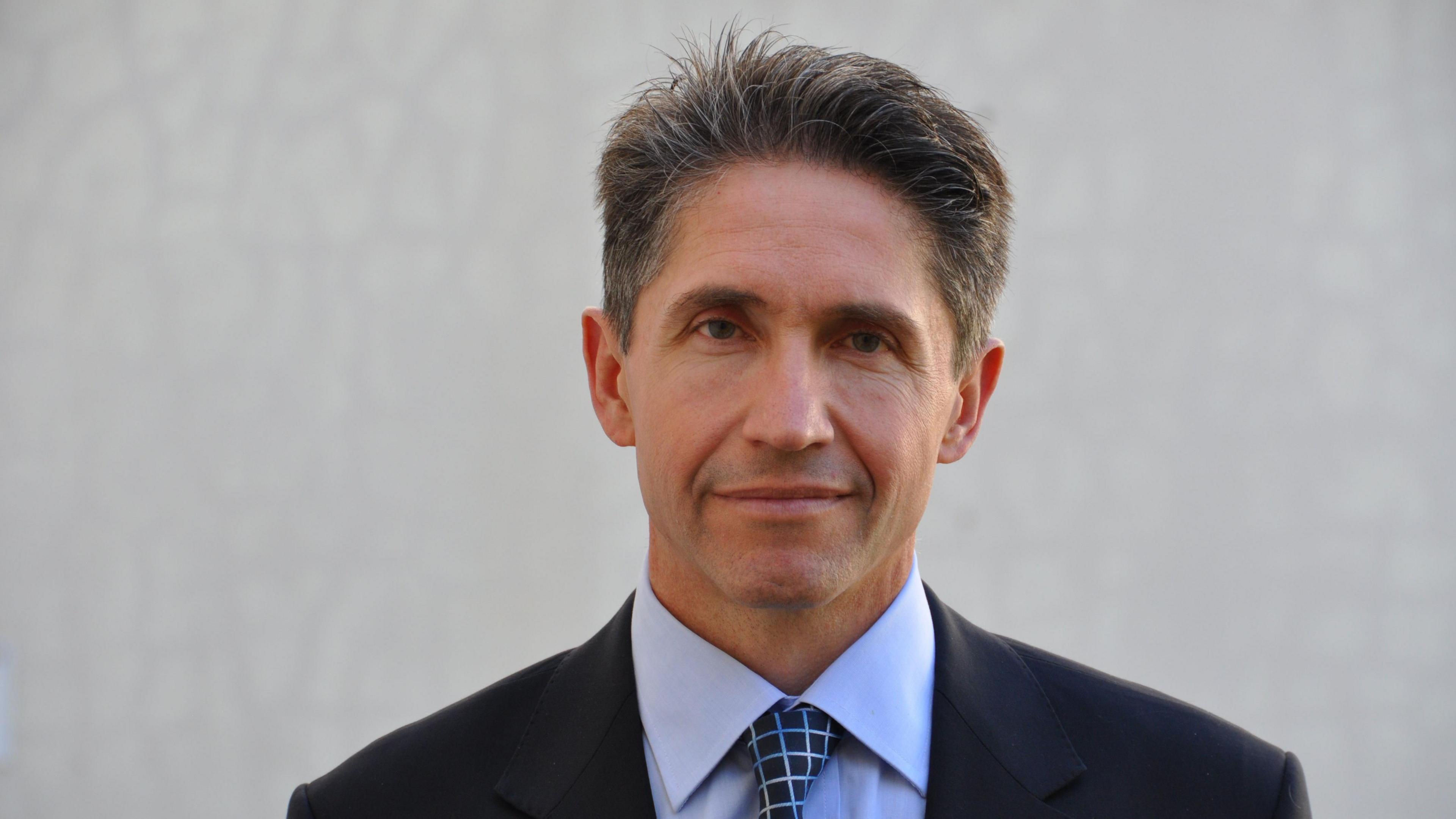
The BBC Political Editor for the West of England Paul Barltrop said the hopes of the final-year students are linked to highly-challenged areas of state funding
Paul Barltrop, the BBC Political Editor for the West of England, said the prospects and hopes of young people at National Star are linked to two highly-challenged areas of state funding.
He said: "The Education, Health and Care Plans which enable them to get their fees paid are set for reform.
"The number of children who have EHCPs has nearly doubled in a decade, straining education budgets.
"A government White Paper is expected shortly, and could see tighter restrictions on who gets support – though probably aimed at students with lesser needs than those at National Star.
"And then when they leave, councils support them as part of their Adult Social Care responsibilities.
"This is the biggest area of council spending, and has also grown rapidly in recent years.
"There's widespread agreement it needs reform, but uncertainty over what that would mean.
Get in touch
Tell us which stories we should cover in Gloucestershire
Follow BBC Gloucestershire on Facebook, external, X, external and Instagram, external. Send your story ideas to us on email or via WhatsApp on 0800 313 4630.
Related topics
Read More
- Published20 June
